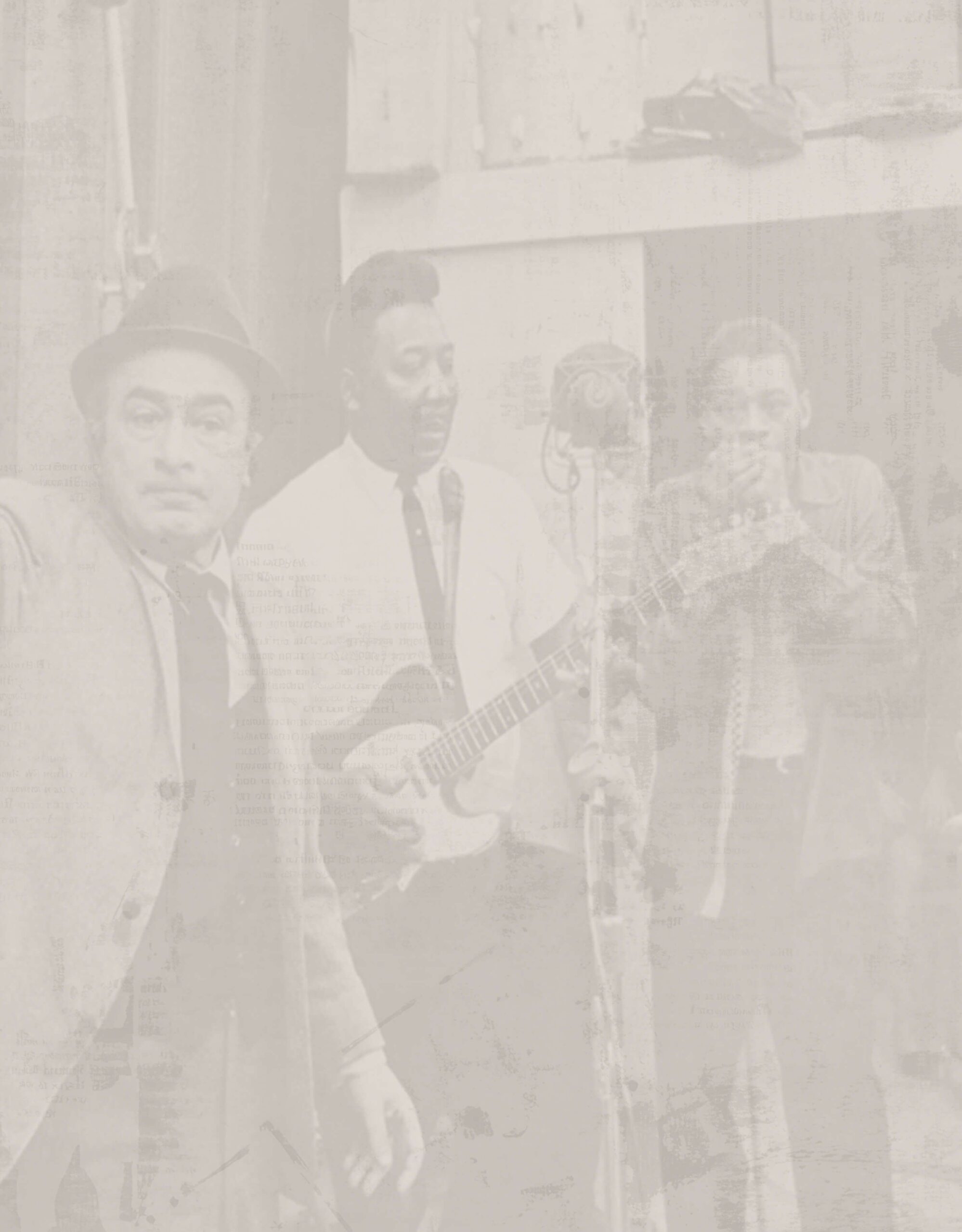Buddy Guy
Buddy Guy
“Guitar legends do not come any better than Buddy Guy.” - Bill Wyman, The Rolling Stones
Buddy Guy started his mainstream career as an upstart in the Chicago blues tradition, but ended up becoming something much more: a devoted practitioner of the electric guitar in its each and every facet. His skilled playing and connection to long-gone generations of music history have made him a more vital figurehead of popular music with each passing year.
George Guy first began his musical journey in Lettsworth, Louisiana, where he was born in 1936. The eldest of five children, he began honing his craft on a homemade diddley bow before picking up his first acoustic guitar, later becoming a fixture of the Baton Rouge music scene. In 1957, he made a fateful move out to Chicago, and soon integrated himself into a thriving blues scene. Legend has it that his first recordings, including a collaboration with Ike Turner, were secured by a contract he won in a guitar duel with Magic Sam and Otis Rush.
In 1959, Guy signed a contract with Chess Records. His tenure on the label would be a period of great discovery and collaboration. The young guitarist sat in on countless Chess sessions, including Muddy Waters’ Folk Singer, singles for Sonny Boy Williamson and Koko Taylor, and the late ‘60s Super Blues sessions that paired Waters and Bo Diddley first with Little Walter, then Howlin’ Wolf. But, by his own admission, the Chess years were also difficult. The label had difficulty figuring out which recording style best suited him, disagreeing with Guy’s preference of amplified, even distorted electric blues.
While little of his playing in that style made it on record at the time, his dynamic live shows were studied and admired by the likes of Eric Clapton, Jeff Beck and Jimi Hendrix. Guy spent the next few decades recording for other labels and touring, waiting patiently for audiences to catch up to him. They finally did by the end of the 1980s, when a renewed interest in blues music - and the continued support of practitioners like Clapton and Stevie Ray Vaughan - turned Buddy Guy into a living conduit to decades of bygone tradition.
Long past retirement age, Guy remained a road warrior, touring both internationally and holding court at his own Chicago club, Buddy Guy’s Legends. He earned a place in the Rock and Roll Hall of Fame in 2005 and received a Grammy Lifetime Achievement Award a decade later - one of eight trophies bestowed to him by the Recording Academy. In 2025, nearly 70 years after his guitar was first captured on record, Buddy Guy’s blues talents received a most unexpected tribute when he appeared in a pivotal scene of the blockbuster film Sinners, written and directed by acclaimed filmmaker Ryan Coogler.
Buddy Guy started his mainstream career as an upstart in the Chicago blues tradition, but ended up becoming something much more: a devoted practitioner of the electric guitar in its each and every facet. His skilled playing and connection to long-gone generations of music history have made him a more vital figurehead of popular music with each passing year.
George Guy first began his musical journey in Lettsworth, Louisiana, where he was born in 1936. The eldest of five children, he began honing his craft on a homemade diddley bow before picking up his first acoustic guitar, later becoming a fixture of the Baton Rouge music scene. In 1957, he made a fateful move out to Chicago, and soon integrated himself into a thriving blues scene. Legend has it that his first recordings, including a collaboration with Ike Turner, were secured by a contract he won in a guitar duel with Magic Sam and Otis Rush.
In 1959, Guy signed a contract with Chess Records. His tenure on the label would be a period of great discovery and collaboration. The young guitarist sat in on countless Chess sessions, including Muddy Waters’ Folk Singer, singles for Sonny Boy Williamson and Koko Taylor, and the late ‘60s Super Blues sessions that paired Waters and Bo Diddley first with Little Walter, then Howlin’ Wolf. But, by his own admission, the Chess years were also difficult. The label had difficulty figuring out which recording style best suited him, disagreeing with Guy’s preference of amplified, even distorted electric blues.
While little of his playing in that style made it on record at the time, his dynamic live shows were studied and admired by the likes of Eric Clapton, Jeff Beck and Jimi Hendrix. Guy spent the next few decades recording for other labels and touring, waiting patiently for audiences to catch up to him. They finally did by the end of the 1980s, when a renewed interest in blues music - and the continued support of practitioners like Clapton and Stevie Ray Vaughan - turned Buddy Guy into a living conduit to decades of bygone tradition.
Long past retirement age, Guy remained a road warrior, touring both internationally and holding court at his own Chicago club, Buddy Guy’s Legends. He earned a place in the Rock and Roll Hall of Fame in 2005 and received a Grammy Lifetime Achievement Award a decade later - one of eight trophies bestowed to him by the Recording Academy. In 2025, nearly 70 years after his guitar was first captured on record, Buddy Guy’s blues talents received a most unexpected tribute when he appeared in a pivotal scene of the blockbuster film Sinners, written and directed by acclaimed filmmaker Ryan Coogler.


